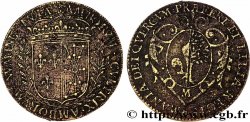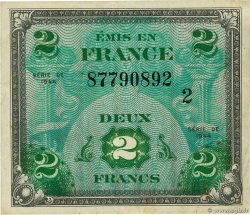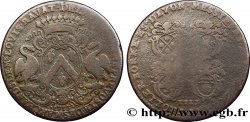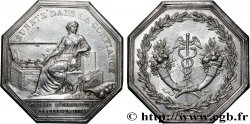E-auction 114-61530 - fjt_07313 - ILE DE FRANCE - TOWNS AND GENTRY Claude Le Peletier, prévot des marchands de Paris 1676
Чтобы принять участие в торгах, вы должны войти в систему и стать подтвержденным участником аукциона. Войдите, чтобы сделать ставку. Ваш аккаунт будет подтвержден в течение 48 часов. Не ждите до закрытия торгов, чтобы зарегистрироваться.Сделав ставку на данный товар, вы вступаете в юридическое соглашение на покупку выбранного товара и нажатием кнопки «Сделать ставку» подтверждаете принятие вами условий интернет-аукционов cgb.fr.
Ставка может бить сделана только в полном эквиваленте евро. Торги закроются согласно времени, указанному в описании товара, все ставки, сделанные после закрытия торгов, учитываться не будут. Не следует откладывать предложение вашей ставки до последнего момента, так как система может не успеть обработать вашу заявку, и ваша ставка не будет принята. Более детальную информацию вы найдёте здесь: FAQ по интернет-аукционам.
БЕСПЛАТНО.
БЕСПЛАТНО.
| Оценить : | 85 € |
| Цена : | 24 € |
| Максимальная предлагаемая цена : | 27 € |
| Конец торгов : | 22 June 2015 18:28:30 |
| Участников : | 7 Участников |
Тип Claude Le Peletier, prévot des marchands de Paris
Дата: 1676
Металл: silver
Диаметр: 27 mm
Ориентация осей монеты: 12 h.
Век: lisse
Редкость: R1
Ссылки в каталоге: :
Лицевая сторона
Аверс: легенда: DE. LA. 4E. PREV. DE. MRE. CLAUDE. LE. PELETIER.
Аверс: описание: Armes de Paris.
Обратная сторона
Реверс: легенда: RAMIS. FRONDESCIT. OLIVAE ; À L'EXERGUE : 1676.
Реверс: Описание: La massue d'Hercule en pal.
Реверс: перевод: Elle se recouvre de feuilles d'olivier.
Комментарий
D'Affry de la Monnoye donne l'explication du revers Pausanias raconte qu'à Trézène, Hercule, ayant posé sa massue près du simulacre d'Hermès, cette massue d'olivier sauvage, prit racine et poussa aussitôt des feuilles Les victoires de Louis XIV sont comparées à cette massue et ont pour conséquence la paix, symbolisée par l'olivier.
Claude Le Peletier, seigneur d’Ablon, de Montmélian, de Morfontaine...., né en juin 1631, d’abord conseiller au Châtelet, il passa, le 29 janvier 1652, au Parlement, où il devint, en 1662, président de la cinquième chambre des enquêtes. Après la mort de Gaston, duc d’Orléans (2 février 1660), il fut tuteur des filles de ce prince. En 1667, il fut choisi pour doyen d’honneur de la Faculté de droit. Nommé conseiller d’État en 1673, il fut appelé, en 1683, après la mort de Colbert, au poste de contrôleur général des finances, qu’il occupa jusqu’en septembre 1689, et il fut, en outre, créé ministre d’État. En 1686, il acheta une charge de président à mortier, qu’il céda, trois ans après, à son fils Louis. Enfin, il fut chargé de la surintendance des postes en 1671, en remplacement du marquis de Louvois. Désirant le repos, il se démit de ses emplois en 1697, et il mourut, dans la retraite, le 10 août 1711, à quatre-vingt ans.
D'Affry de la Monnoye gives the explanation of the reverse Pausanias tells that at Troezen, Hercules, having placed his club near the simulacrum of Hermes, this wild olive club took root and immediately grew leaves The victories of Louis XIV are compared to this club and result in peace, symbolized by the olive tree.
Claude Le Peletier, Lord of Ablon, Montmélian, Morfontaine. . . . , born in June 1631, first councilor at the Châtelet, he moved, on January 29, 1652, to Parliament, where he became, in 1662, president of the fifth chamber of inquiries. After the death of Gaston, Duke of Orleans (February 2, 1660), he was tutor to the daughters of this prince. In 1667 he was chosen as honorary dean of the Faculty of Law. Appointed State Councilor in 1673, he was called, in 1683, after the death of Colbert, to the post of Comptroller General of Finances, which he occupied until September 1689, and he was, in addition, created Minister of State. In 1686, he bought a position as president of the mortar board, which he gave, three years later, to his son Louis. Finally, he was put in charge of the superintendence of the posts in 1671, replacing the Marquis de Louvois. Desiring rest, he resigned from his employment in 1697, and he died in retirement on August 10, 1711, at the age of eighty.
Claude Le Peletier, seigneur d’Ablon, de Montmélian, de Morfontaine...., né en juin 1631, d’abord conseiller au Châtelet, il passa, le 29 janvier 1652, au Parlement, où il devint, en 1662, président de la cinquième chambre des enquêtes. Après la mort de Gaston, duc d’Orléans (2 février 1660), il fut tuteur des filles de ce prince. En 1667, il fut choisi pour doyen d’honneur de la Faculté de droit. Nommé conseiller d’État en 1673, il fut appelé, en 1683, après la mort de Colbert, au poste de contrôleur général des finances, qu’il occupa jusqu’en septembre 1689, et il fut, en outre, créé ministre d’État. En 1686, il acheta une charge de président à mortier, qu’il céda, trois ans après, à son fils Louis. Enfin, il fut chargé de la surintendance des postes en 1671, en remplacement du marquis de Louvois. Désirant le repos, il se démit de ses emplois en 1697, et il mourut, dans la retraite, le 10 août 1711, à quatre-vingt ans.
D'Affry de la Monnoye gives the explanation of the reverse Pausanias tells that at Troezen, Hercules, having placed his club near the simulacrum of Hermes, this wild olive club took root and immediately grew leaves The victories of Louis XIV are compared to this club and result in peace, symbolized by the olive tree.
Claude Le Peletier, Lord of Ablon, Montmélian, Morfontaine. . . . , born in June 1631, first councilor at the Châtelet, he moved, on January 29, 1652, to Parliament, where he became, in 1662, president of the fifth chamber of inquiries. After the death of Gaston, Duke of Orleans (February 2, 1660), he was tutor to the daughters of this prince. In 1667 he was chosen as honorary dean of the Faculty of Law. Appointed State Councilor in 1673, he was called, in 1683, after the death of Colbert, to the post of Comptroller General of Finances, which he occupied until September 1689, and he was, in addition, created Minister of State. In 1686, he bought a position as president of the mortar board, which he gave, three years later, to his son Louis. Finally, he was put in charge of the superintendence of the posts in 1671, replacing the Marquis de Louvois. Desiring rest, he resigned from his employment in 1697, and he died in retirement on August 10, 1711, at the age of eighty.








 Cообщить об ошибке
Cообщить об ошибке Распечатать страницу
Распечатать страницу Отправить мой выбор
Отправить мой выбор Задать вопрос
Задать вопрос Consign / sell
Consign / sell
 Информация
Информация















